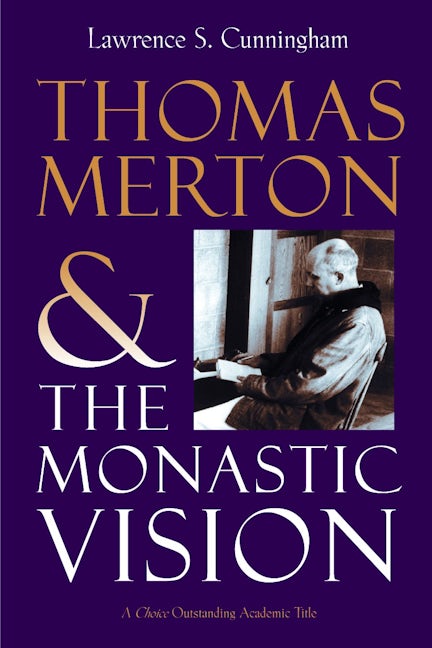1
/
of
1
Lawrence S. Cunningham
Thomas Merton and the Monastic Vision
Thomas Merton and the Monastic Vision
Regular price
$25.99 USD
Regular price
Sale price
$25.99 USD
Unit price
/
per
Shipping calculated at checkout.
Couldn't load pickup availability
Though the outlines of Thomas Merton's life are generally known to his many readers, the details of his spiritual development are less familiar. Taking up where Merton's own Seven Storey Mountain ends, this penetrating biography by Lawrence Cunningham explores Merton's monastic life and his subsequent growth into a modern-day spiritual master.
Cunningham shows that Merton's prolific writings and his continuing influence can only be understood against the background of his contemplative experience as a Trappist monk. "If one does not understand Merton as a monk," writes Cunningham, "one does not understand Merton at all."
Following the trajectory of Merton's life, starting from his entrance into the Abbey of Gethsemani, Kentucky, in 1941, Cunningham highlights the development of Merton's monastic life against the cultural background of the American experience and the vast upheavals in the Roman Catholic Church. This unique approach clearly reveals the paradox of Merton's life. Here was a person deeply involved in the cultural struggles of his day despite having made a conscious decision to draw away from the world in silence and solitude. With both pen and voice, Merton construed to face the most seething issues of the century, including the antiwar and civil-rights movements. Equally intriguing was Merton's dialogue with Zen Buddhism, a figurative and literal journey to the East that ended with his death in Bangkok in 1968.
Adding to the interest of this balanced and reliable biography is a foreword by Father Timothy Kelly, the current abbot of the Abbey of Gethsemani, who was himself a novice under Merton.
Cunningham shows that Merton's prolific writings and his continuing influence can only be understood against the background of his contemplative experience as a Trappist monk. "If one does not understand Merton as a monk," writes Cunningham, "one does not understand Merton at all."
Following the trajectory of Merton's life, starting from his entrance into the Abbey of Gethsemani, Kentucky, in 1941, Cunningham highlights the development of Merton's monastic life against the cultural background of the American experience and the vast upheavals in the Roman Catholic Church. This unique approach clearly reveals the paradox of Merton's life. Here was a person deeply involved in the cultural struggles of his day despite having made a conscious decision to draw away from the world in silence and solitude. With both pen and voice, Merton construed to face the most seething issues of the century, including the antiwar and civil-rights movements. Equally intriguing was Merton's dialogue with Zen Buddhism, a figurative and literal journey to the East that ended with his death in Bangkok in 1968.
Adding to the interest of this balanced and reliable biography is a foreword by Father Timothy Kelly, the current abbot of the Abbey of Gethsemani, who was himself a novice under Merton.
Share


